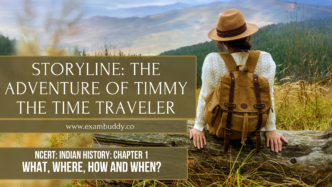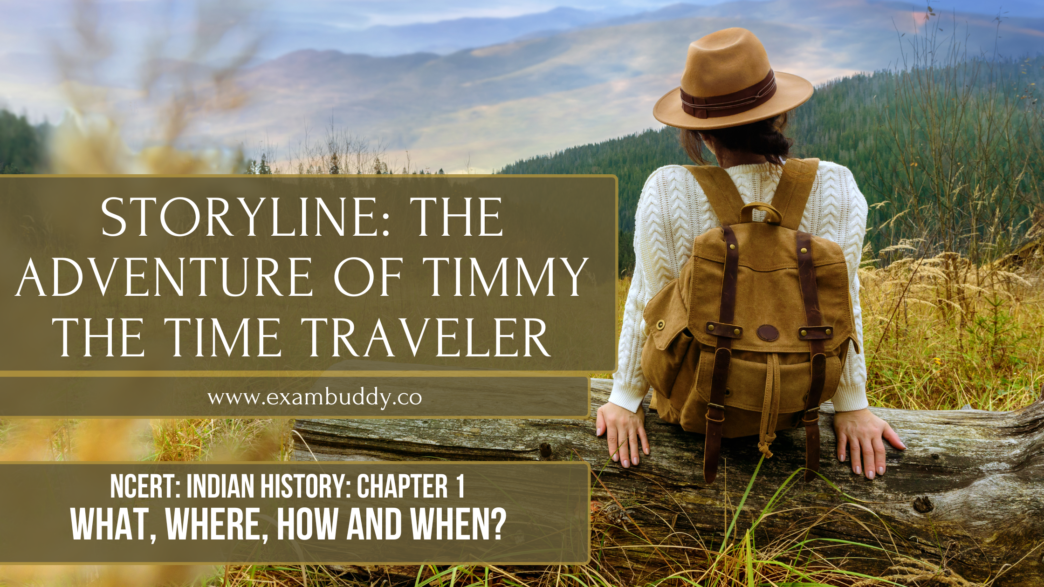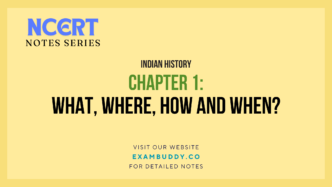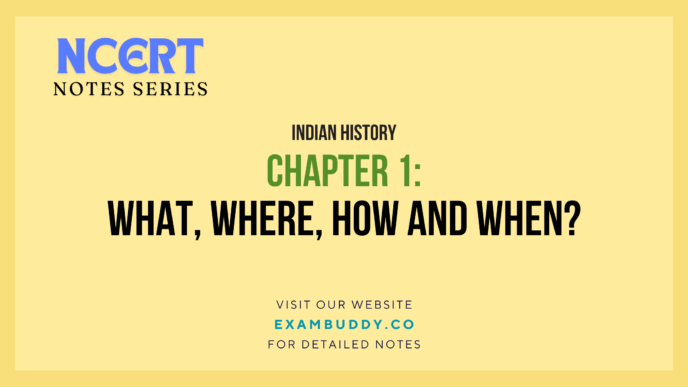Once upon a time in a small town, there lived a curious boy named Timmy. Timmy loved history and often dreamt of traveling back in time to meet the people from the past. One day, he found a magical time-traveling watch hidden in his attic. Excited, he set the date to the ancient times!
As he pressed the button, he was transported to a mysterious forest where he met a wise old History Owl named Ollie. Ollie told Timmy that to understand history, he needed to answer four important questions: What, Where, How, and When?
Refer to the NCERT NOTES for this chapter for conceptual understanding Click Here
1. What?
Ollie flapped his wings and explained, “What means the events that happened in the past. Imagine discovering treasure! You’d want to know what it is, right?”
Example: “What was the event when early humans started farming instead of hunting?”
- Definition of History: The study of past events, especially in human affairs.
- Importance: Understanding history helps us comprehend the present and shape the future.
Refer to the NCERT NOTES for this chapter for conceptual understanding Click Here
2. Where?
Timmy looked around, puzzled. Ollie pointed out the ancient landmarks around them. “Where refers to the places where these events took place. Like your favorite places in town!”
Example: “Where did early humans first start using stone tools? At places like Bhimbetka in Madhya Pradesh!”
- Archaeological Sites:
- Bhimbetka: Rock shelters with ancient paintings.
- Hunsagi: Site with evidence of stone tools and human habitation.
Refer to the NCERT NOTES for this chapter for conceptual understanding Click Here
3. How?
Timmy was getting excited! “How helps us understand the processes and methods. How did they start farming?” he asked.
Ollie smiled, “Great question! They learned to plant seeds and take care of animals. It was like a magic recipe for a better life!”
- Key Concepts:
- Chronology: The arrangement of events in order.
- Timelines: A visual tool that shows the sequence of events.
Example: “How did they go from hunting animals to growing crops? By learning about nature!”
Refer to the NCERT NOTES for this chapter for conceptual understanding Click Here
4. When?
Finally, Timmy wondered, “When did all this happen?” Ollie produced a giant clock with dates on it.
“When helps us understand the timeline of events, just like your birthday on a calendar!”
Important Dates:
- 2 million years ago: When early humans first appeared.
- 300,000 years ago: Emergence of Homo sapiens.
- 10,000 BCE: The start of farming, marking the Neolithic Revolution.
Refer to the NCERT NOTES for this chapter for conceptual understanding Click Here
5. The Story of Early Humans
Ollie took Timmy on a journey through time to meet hunter-gatherers.
- Lifestyle: They lived in small groups, moving frequently to find food.
- Tools: They used simple stone tools and gathered wild fruits, nuts, and hunted animals.
Refer to the NCERT NOTES for this chapter for conceptual understanding Click Here
6. Timmy’s Adventure with Archaeology
Ollie invited Timmy to explore some amazing archaeological sites:
- Bhimbetka: Timmy marveled at the rock paintings showing early humans dancing and hunting. “Wow, look at their stories!”
- Hunsagi: They found stone tools and fossils, reminding Timmy of a treasure hunt! “These artifacts tell us about their lives!”
- Significance of Archaeology: Studying physical remains helps us understand ancient human life.
Refer to the NCERT NOTES for this chapter for conceptual understanding Click Here
7. The Importance of History
Ollie explained why history is important, “Timmy, learning about the past helps us understand who we are today! It’s like a family tree showing where we came from!”
- Understanding Our Roots: It helps us connect with our culture and heritage.
Refer to the NCERT NOTES for this chapter for conceptual understanding Click Here
8. Key Terms
As Timmy explored, Ollie taught him some important terms:
- Archaeology: The scientific study of human history through excavation.
- Chronology: The arrangement of events in order.
- Artifact: An object made by a human being, typically an item of cultural or historical interest.
- Prehistoric Period: The time before written records.
Refer to the NCERT NOTES for this chapter for conceptual understanding Click Here
9. Study Tips for Timmy
Before heading back home, Ollie shared some study tips with Timmy:
- Draw Timelines: “Make a timeline of important dates. It’s like drawing a path of your favorite adventure!”
- Create Mind Maps: “Connect ideas like a spider web! It helps you remember how everything is linked.”
- Discuss with Friends: “Share stories and ideas with your friends. It makes learning fun!”
Refer to the NCERT NOTES for this chapter for conceptual understanding Click Here











